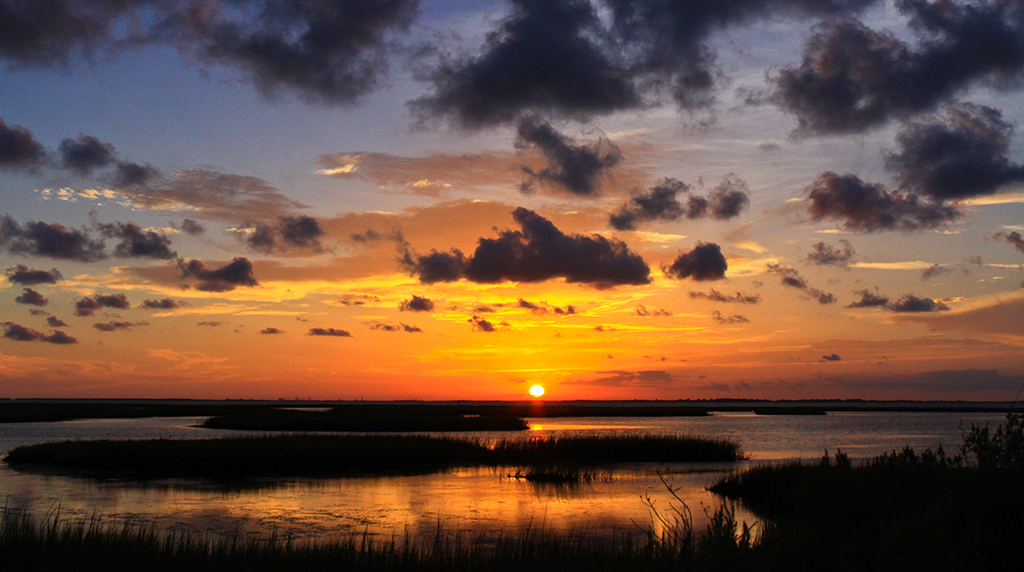The Gulf of Mexico Research Initiative (GoMRI) provides support to the Sea Grant programs of the Gulf of Mexico (Florida, Mississippi-Alabama, Louisiana and Texas) for an extension and outreach effort to increase the use of oil spill science by people whose livelihoods depend on a healthy Gulf. This oil spill science outreach program allows Sea Grant specialists to find out what types of information target audiences want and develop tailor-made products for those audiences.
Below, you will find a number of publications developed by Sea Grant outreach specialists that answer questions about the impacts of the oil spill and the research being done by scientists in the Gulf.
Advancements In Understanding Ocean Circulation And Tracking The Movement Of Oil
This publication looks at what scientists have learned about the manner oil moves in the marine environment and how they have used this knowledge to improve oil spill models.
Understanding The Human Health And Socioeconomic Impacts From The Deepwater Horizon Oil Spill
This publication summarizes what scientists have discovered about physical and mental health effects along with socioeconomic and community resilience challenges following Deepwater Horizon.
New Discoveries In Microbiology, Genomics, And Oil Spill Impacts
This publication reveals that new technologies used to study the Deepwater Horizon oil spill advanced our knowledge about marine microbe populations that breakdown oil, including the discovery of new species.
Oil Spill Modelling: Preparedness And Response
This publication outlines the ways in which GoMRI-funded findings helped to improve oil spill response modeling, which will in turn improve the preparedness and response to future spills.
Oil On The Water: Insights Into Oil Spill Response
An oil spill occurs offshore and emergency responders are called to the scene. Their goal is to protect people and natural resources. To do so, they must select the best set of clean-up tools and techniques for the situation at hand. They consider many factors, including but not limited to human and animal welfare, weather and sea conditions, geography, and type of oil.
Oil Spills And Harmful Algal Blooms: Disasters With Shared Consequences for Communities
Natural and human-caused disasters like harmful algal blooms and oil spills are a part of life for many coastal communities. In the immediate aftermath of the Deepwater Horizon oil spill, people were concerned that the spill might trigger blooms of harmful algae and questioned whether residual oil in the environment generated blooms in following years. Though the causes of these two types of disasters are different, their potential impacts to local communities and economies have similarities.
Extremely productive and beneficial ecosystems, mangrove forests stabilize coastlines by protecting shorelines from storm surges, currents, waves, and tides. They improve coastal water quality and provide shelter to species of fish, crab, shrimp, and mollusks. However, if mangrove forests are compromised by oil spills, they can no longer shield coastlines, provide habitat, or feed organisms living among their roots and branches.
In The Air And On The Water: Technology Used To Investigate Oil Spills
Oil detection and monitoring are important for managing marine resources and minimizing potential environmental impacts. New technologies complement traditional ship, satellite, and mooring-based data collection techniques, allowing scientists to study all aspects of oil spills.
UPDATED FOR 2019 - Top 5 Frequently Asked Questions About The Deepwater Horizon Oil Spill
The Deepwater Horizon (DWH) oil spill occurred in April 2010, about 50 miles offshore of Louisiana. Nearly 172 million gallons of oil entered the Gulf of Mexico. The five questions below were the most frequently asked by people who depend on a clean and healthy Gulf of Mexico.
Birds Of A Feather - Coping With Oil
Although birds can travel great distances, they cannot necessarily escape oil exposure from natural oil seeps or oil spills caused by humans. Scientists and natural resource managers are still trying to understand the many ways oil exposure can affect birds.
Frequently Asked Questions: Dispersants Edition
Chemical dispersants break oil into smaller droplets, limiting the amount of oil that comes into contact with wildlife and shorelines. Many people question how they work and whether they are safe for people and animals.
Coastal storms can trigger oil and chemical spills. Learn what to do if a storm causes a spill near you.
Underwater Vehicles Used To Study Oil Spills
Scientists use a variety of oil detection technologies to determine the location of the oil released, to see how it spreads, and to identify chemicals in the oil. Remotely operated vehicles (ROVs), autonomous underwater vehicles (AUVs), and submarines help to locate oil and monitor its impacts below the water’s surface and on the seafloor.
When a large-scale marine oil spill occurs, animals like birds, dolphins, whales and sea turtles who migrate through a wide range of habitats tend to be at high risk of exposure.
Microbes And Oil: What's the Connection?
Microbes may be tiny organisms, but they play a large role in removing oil from the environment. How do these microscopic organisms make large-scale impacts?
The Deepwater Horizon oil spill occurred deep in the ocean, spreading oil at depth and into shallow and coastal areas. Scientists have since discovered the spill injured some coral communities living in the Gulf of Mexico.
Deepwater Horizon: Where Did The Oil Go?
Due to the size and scope of the spill, people wanted to know where the oil would travel.
Predicting The Movement Of Oil
When oil spills occur, one of the first questions is “Where will the oil go?”
A Boater's Guide To Handling Oil And Fuel Spills
Work or play along the Gulf coast? Know what to do in the event of an accidental spill.
Sea Turtles And The Deepwater Horizon Oil Spill
Sea turtles are some of the world’s most well-known endangered and threatened animals. So far, what have we learned about the impact Deepwater Horizon oil had on sea turtles in the Gulf?
The Deepwater Horizon’s Impact On Bottlenose Dolphins
In 2010, scientists documented a markedly increased number of stranded dolphins in the northern Gulf of Mexico. Was oil exposure to blame? Could other factors have been in play?
Emerging Surfactants, Sorbents, And Additives For Use In Oil Spill Clean-Up
The Deepwater Horizon oil spill renewed the world’s focus on the need for safe, effective methods to combat oil’s intrusion into the delicate marine ecosystem. This publication outlines an array of tools in development designed to aid in future oil spill clean-up efforts.
Frequently Asked Questions: Oil Edition
Think you know everything there is to know about oil? This publication details the ins and outs of petroleum – from where it comes from to what it’s made of to how scientists track it in the environment.
The Deepwater Horizon’s Impact On People’s Health: Increases In Stress and Anxiety
Wondering about the Deepwater Horizon oil spill’s human impacts? Learn how the 2010 spill affected mental health in both individuals and coastal communities.
Skin Lesions In Fish: Was There A Connection To The Deepwater Horizon oil spill?
Learn about what fish skin lesions are and why they caused concern after the Deepwater Horizon oil spill.
Impacts From The Deepwater Horizon Oil Spill On Gulf Of Mexico Fisheries
Learn how the oil spill impacted Gulf fisheries on the individual, population, and community-level.
Chemical Dispersants And Their Role In Oil Spill Response
Learn why and how dispersants are used during oil spills and how they were used during the Deepwater Horizon oil spill.
Persistence, Fate, And Effectiveness Of Dispersants Used During The Deepwater Horizon Oil Spill
Learn about the effectiveness and persistence of dispersants in the environment and whether it was necessary to use dispersants at the subsurface.
Responses Of Aquatic Animals In The Gulf Of Mexico To Oil And Dispersants
Learn how dispersants impact aquatic life in terms of life stage and species and how lab and field studies can provide a more complete picture of the implications of exposure to oil and dispersants.
Top 5 Frequently Asked Questions About The Deepwater Horizon Oil Spill
Learn the answers to the top 5 most frequently asked questions about the Deepwater Horizon oil spill.
Navigating Shifting Sands: Oil On Our Beaches
Learn how oil from the Deepwater Horizon oil spill was buried, how it moves around, and how scientists track this oil.
Fisheries Landings And Disasters In The Gulf Of Mexico
Learn about historical fisheries landings data within the context of man-made and natural disasters. Explore why this data is important for fisheries management.
The Deepwater Horizon Oil Spill’s Impact On Gulf Seafood
Learn about the results of federal, state and independent seafood testing after the Deepwater Horizon oil spill.


















 back to top
back to top